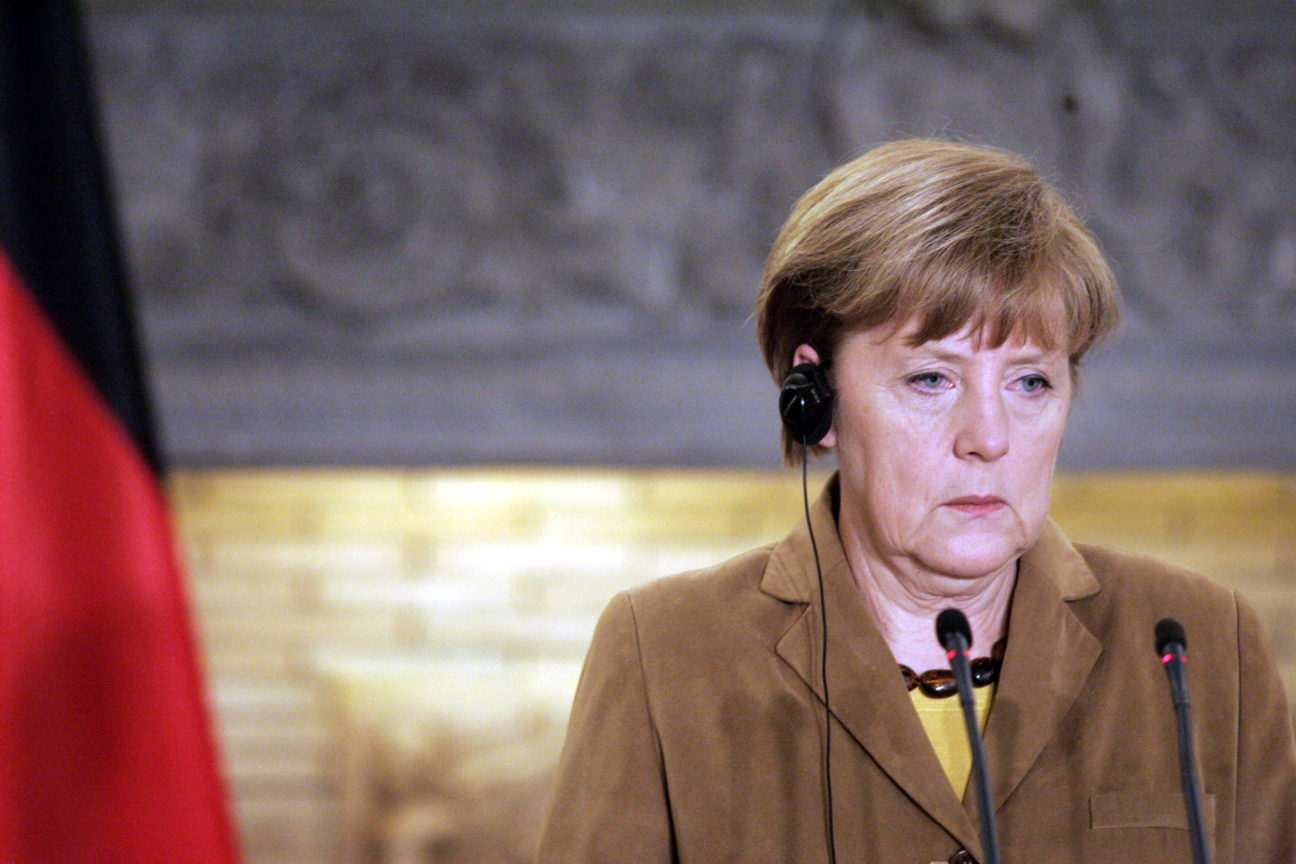By Kostas Vaxevanis
In recent weeks, Europe has finally begun to awaken to the realization of the many structural problems that it faces, as well as the democratic deficit which exists. The constant stream of communiqués resemble, to older generations of Greeks, the telegrams sent to the Greek regime by the Axis powers during World War II, while to the newer generations, they are reminiscent of America’s threats of bombardment towards Iraq and Afghanistan. Greece is expected, within just a few days, to agree to whatever is demanded by Mr. Dijsselbloem and his masters in Berlin. In other words, Merkel is displaying total indifference for two very serious issues. The first is the fact that the recent Greek elections brought to power a government which was elected on the basis of not making such agreements. The second issue is that the policies being enforced by Europe today are leading it to a dead-end, which is not the fault of the Greeks but of the European people.
The crisis of the past several years has revealed that the European Union has been constructed upon a faulty structure. It has shown that austerity is neither a suitable economic or political tool. It has proven that strict standards may indeed have some value, but only if they are realized and not when they are rejected and denied.
The European North, with its epicenter in Berlin, is increasing its profits during a time of crisis, with these profits flowing to the economic elite, to a cartel representing various interests, but not to ordinary citizens, not even to those of Germany. In the European South, on the other hand, regardless of whether the citizens of these countries have understood the structural problems and the faux solidarity of Εurope, the issue is that they can no longer endure austerity policies whose only result has been the development of a humanitarian crisis.
Merkel’s insistence on fiscal stability has resulted in truly murderous conditions and an economy which is not functioning, if we define an economy as a system which encompasses all human activity and whose gold is to promote a better quality of life for all, and not merely the financial gain of a select few. Europe, as demonstrated by the crisis and by the SYRIZA phenomenon which is beginning to take hold, desperately needs political solutions. It needs to reconsider its structure, its priorities, and its values. This is essential, if Europe is to survive as a community of peoples. Its leaders and the European people must decide which are the measures and policies which will replace the economic priorities which are revered by the adherents of Merkel’s economic Protestantism.
These needs, and not mere populism, are what have brought SYRIZA to power in Greece. They are the forces which will likely bring Podemos to power in Spain and which may oblige Matteo Renzi to follow growing popular sentiment in Italy. Europe needs to adjust to this new reality, instead of menacingly waving a cane to the rest of Europe, as a strict schoolteacher might have once done to a classroom full of unruly children.
In contrast, however, to this new political reality, which will determine the political events which will continue to unfold regardless of Ms. Merkel’s wishes, the economic elite of Europe and its sycophants respond with a continued desire to punish, with further communiqués, and with documents of repentance which Greece is called upon to sign. Within this framework of necessary change, Merkel continues to prefer, like a spoiled child, to bully Greece, flexing her power instead of utilizing logic: responding to dialogue with threats, and responding to the new political reality with an insistence that the old policies be maintained.
During the years when the governments which enjoyed the support of Merkel were in power in Greece, European institutions such as the troika and the Eurogroup, did not seem to be too concerned about the level of corruption in Greece; corruption which was led by those who governed by the country, and by the oligarchs who continued to steal and to evade taxes. They did, however, seem to be quite bothered by the paltry pensions received by some grandmother in some far-flung corner of Greece, which she had spent her life working to earn. Conversely, the Lagarde List, the favorable regulations towards the banking system and big business, the laws that were passed in favor of the corrupt, and the poverty-level salaries which crippled society did not seem to concern these European institutions.
These examples serve as further evidence regarding the need for a unified Europe to reform itself based on new conditions of democracy, instead of on the basis of hypocrisy and harassment. In a Europe where Merkel continues to bully other nations and where Schauble remains in the role of the strict headmaster (while ignoring his own past, including his bribery scandal in 2000), the situation will soon be out of control. Merkel is likely choosing to ignore the historical precedent set by Elena Ceaușescu, who championed similar austerity policies for Romania and who believed that the angry mobs who were gathering to kill her, were masses of supporters who wished to demonstrate their loyalty to her.




 Tα σχόλια στο site έχουν απενεργοποιηθεί. Μπορείτε να σχολιάζετε μέσα από την επίσημη σελίδα στο Facebook
Σχόλια
Tα σχόλια στο site έχουν απενεργοποιηθεί. Μπορείτε να σχολιάζετε μέσα από την επίσημη σελίδα στο Facebook
Σχόλια






